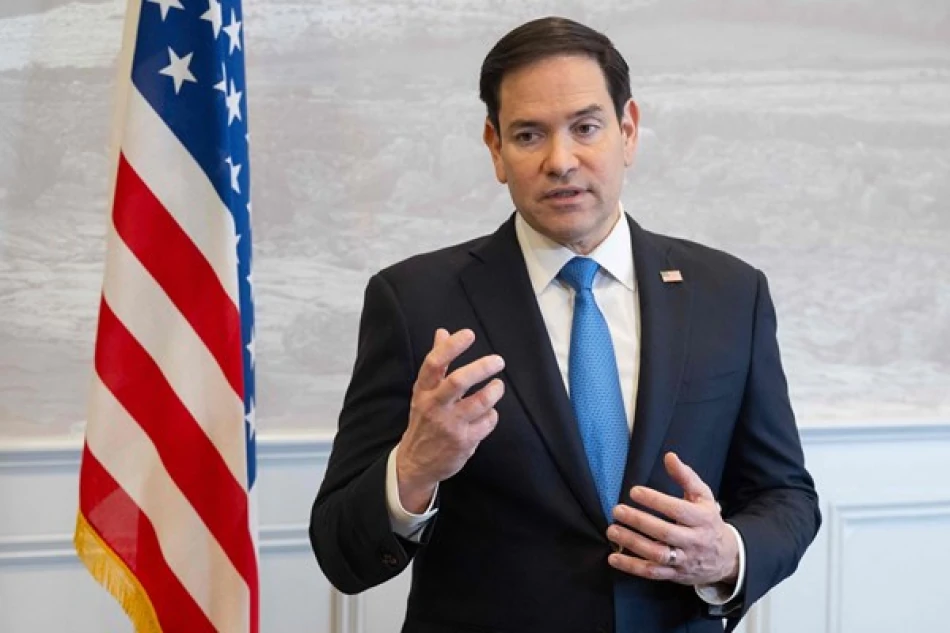
Rubio Calls for 'Constructive' Dialogue with China to Foster Mutual Understanding
Trump Administration Signals Diplomatic Shift as Rubio Reaches Out to Beijing
U.S. Secretary of State Marco Rubio has expressed interest in establishing constructive dialogue with China during a phone call with his Chinese counterpart, marking a potentially significant pivot in America's approach to its most complex bilateral relationship. The overture comes as President Trump hints at escalating trade pressure through new tariffs, creating a dual-track strategy of engagement and economic leverage.
Diplomatic Engagement Amid Trade Tensions
During his telephone conversation with Chinese Foreign Minister Wang Yi, Rubio emphasized "the importance of open and constructive communication on a range of bilateral issues," according to the State Department. This marks a notable shift in tone from previous hardline rhetoric that has characterized U.S.-China relations in recent years.
The call builds on an earlier foundation established when Rubio held what was described as a friendly meeting with Wang in Malaysia last July, suggesting that back-channel diplomatic efforts have been ongoing despite public tensions.
Trump's Personal Diplomacy Strategy
President Trump has simultaneously praised his relationship with Chinese President Xi Jinping and expressed hope for a near-term visit to China. This personal diplomatic approach mirrors Trump's strategy during his first term, when he alternated between public criticism and private engagement with Beijing.
The mixed signals reflect a calculated approach: maintaining dialogue at the highest levels while preserving economic pressure as a negotiating tool. This dual strategy allows the administration to pursue cooperation on global issues while addressing trade imbalances and strategic competition.
Economic Leverage Through Tariff Policy
Trump recently hinted at raising tariffs on China, drawing parallels to similar measures imposed on India. This suggests the administration views trade policy as inseparable from diplomatic engagement, using economic tools to strengthen its negotiating position.
The tariff threat serves multiple purposes: it signals to domestic audiences that Trump remains tough on China while potentially creating urgency for Beijing to engage more seriously in bilateral talks. This approach has precedent in Trump's first-term trade negotiations, which ultimately led to the Phase One trade agreement in 2020.
Market and Strategic Implications
For global markets, this diplomatic opening could signal reduced volatility in U.S.-China relations, potentially benefiting multinational corporations caught between the world's two largest economies. However, the simultaneous tariff threats create uncertainty that may continue to influence supply chain decisions and investment flows.
The engagement also comes at a critical time for both nations, as they face domestic economic challenges and seek to manage competition in emerging technologies, trade routes, and regional influence. Success in establishing stable communication channels could prevent miscalculations that might escalate into broader conflicts affecting global stability.
Most Viewed News

 Layla Al Mansoori
Layla Al Mansoori






